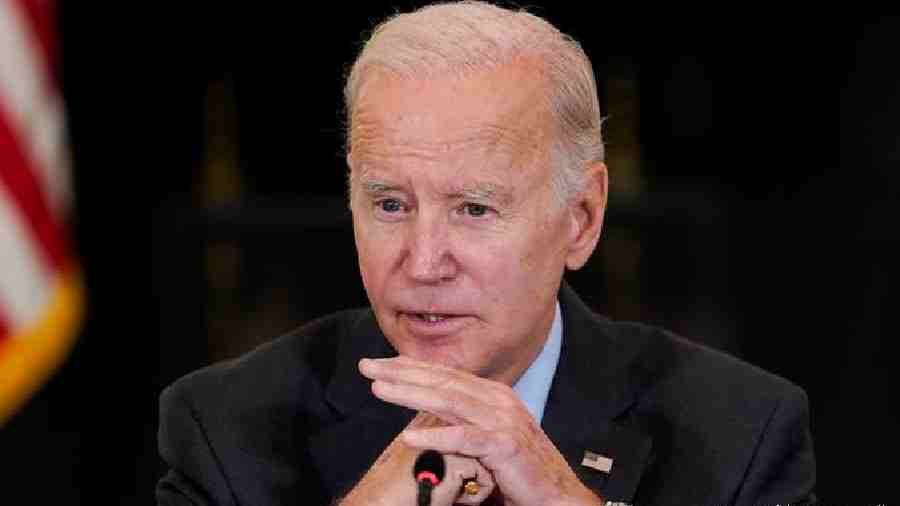The US shot down a Chinese spy balloon on Saturday that had spent the last week traversing the country, an explosive end to a drama that put a diplomatic crisis between the world’s two great powers onto television screens in real time.
The balloon, which spent five days travelling in a diagonal southeast route from Idaho to the Carolinas, had moved off the coast by midday Saturday and was shot down within moments of its arrival over the Atlantic Ocean.
“I told them to shoot it down,” President Joe Biden told reporters in Hagerstown, Maryland, on his way to Camp David on Saturday afternoon. “They said to me, let’s wait until the safest place to do it.”
That time and place came at 2.39pm, Pentagon officials said, some 10km off the coast of South Carolina. The Federal Aviation Administration had paused departures and arrivals at airports in Wilmington, North Carolina, and in Myrtle Beach and Charleston in South Carolina. One of two F-22 fighter jets from Langley Air Force Base fired a Sidewinder air-to-air missile, downing the balloon, which was flying at an altitude of 60,000 to 65,000 feet. The F-22s were at 58,000 feet, with other American fighters in support.
The Pentagon said that navy and coast guard personnel would conduct a recovery effort to retrieve the debris of the balloon, which had landed in relatively shallow water. American national security agencies hope the material they collect will add value to their database of Chinese intelligence gathering.
The Chinese foreign ministry declared its “strong discontent and protest” about the US’s downing of the balloon. In a statement, the ministry said China had told Washington repeatedly that the balloon was a civilian aircraft that had inadvertently flown over the US and its presence was “totally accidental”.
“In these circumstances, for the United States to insist on using armed force is clearly an excessive reaction that seriously violates international convention,” the statement said. “China will resolutely defend the legitimate rights and interests of the enterprise involved, and retains the right to respond further.”
President Biden was alerted by the Pentagon on Tuesday that a spy balloon had entered continental American airspace near Idaho, White House officials said, and asked for military options. By Wednesday, the balloon was hovering over Montana and a full-blown diplomatic crisis was underway, puncturing recent efforts in Washington and Beijing to lower US-China tensions.
Pentagon officials advised then against shooting down the balloon, whose belly structure was roughly the size of three buses, because of the possibility of harm to civilians and infrastructure while it was over land. Pentagon officials also said they did not view the intelligence threat from the balloon as any more extensive than what China could glean from a satellite.
But the arrival — and extended stay — of the balloon over American territory prompted furious calls from senior US officials to their Chinese counterparts, criticism from Republican lawmakers of the White House response, and on Friday, the cancellation of a visit to China by secretary of state Antony J. Blinken. It would have been the first trip by a Biden cabinet secretary to Beijing.
In announcing the cancellation of his trip, Blinken said the entry of the spy balloon was a “clear violation of US sovereignty and international law”.
US officials conveyed to Chinese officials several times in recent days that the US military might shoot down the spy balloon. Blinken told a Chinese diplomat in Washington on Wednesday evening that the American government had the right to take any actions to protect its interests, and he said the same thing on a phone call on Friday with Wang Yi, the top Chinese foreign policy official, a senior administration official said.
Evan Medeiros, a Georgetown University professor who was senior Asia director on President Barack Obama’s National Security Council, said the episode underscored the risks of accidents or miscalculation, as well as “the role of domestic politics in American debates about China — and the role of Congress in interpreting Chinese strategic intentions, including by constraining the administration’s options”.
New York Times News Service










